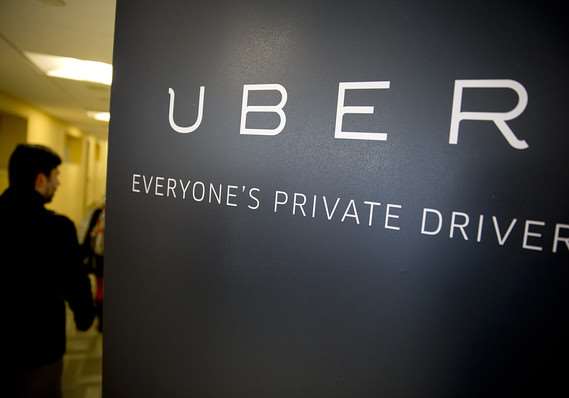Canberra will become the first city in Australia to legalise Uber and other ridesharing services when new rules come into play at the end of October.
At a time when other states authorities are pushing to hobble Uber or ban its cars from the streets, the ACT Government is pushing for basic regulation of ridesharing and red tape reduction for the taxi industry.
The latter is particularly important: one of the taxi industry’s key demands in its ongoing national stoush with Uber is for a “level playing field” – where it is not disadvantaged by huge licensing and on-road requirements set by state and territory governments.
In the ACT’s case, the territory government is dipping into its own pockets, cutting taxi license lease fees by 50 percent on October 30 – and then by a further 50 percent a year later.
In other words, lease fees will fall from $20,000 now to $5000 in the space of a year. Hire car license fees will also fall from $4600 a year to just $100.
The ACT Government will require ridesharing drivers to pass certain “safeguards such as criminal history and driver history checks” in the first instance.
But in the future – and subject to the passage of proposed laws to be introduced to the Legislative Assembly by October 30 – such drivers will need to be formally accredited in much the same manner as existing taxi and hire car operators.
“This includes criminal and driving history checks, vehicles inspections and appropriate insurance arrangements,” the ACT Government said.
ABC reported that a transport booking service would be launched that covered traditional cabs as well as Uber and goCatch.
The ACT Government hoped the new rules would create new opportunities for existing taxi drivers.
“Canberra’s taxi drivers will have access to multiple modes of business, from traditional rank-and-hail work to ridesharing and third-party taxi booking apps,” the territory government said in a statement.
“This will increase productivity and income streams for drivers while providing a consistent and high-quality on-demand transport service for Canberrans.”
The taxi industry immediately denounced the ACT Government’s move to legalise ridesharing but later softened its tone.
"Currently ridesharing is taking place illegally, where the taxi industry complies with copious regulation," Combined Communications Network chief operating officer Stuart Overell said.
"We’re pleased to see the ACT regulation recognise the need for change. However, as the company that runs the majority of taxi brands across the country including Taxis Combined, Silver Service and 13CABS, we believe it’s important that this regulation sets the right precedent."
The national fight
Uber is yet to actually enter the Canberra market, but it’s A/NZ head David Rohrsheim welcomed the smoother path to market entry in a tweet.
Congrats @ABarrMLA for embracing ridesharing and the future of transport! @mikebairdMP #YesweCanberra #IChooseUber
— David Rohrsheim (@rohrsh) September 30, 2015
When news of Uber’s plan to push into Canberra broke several weeks ago, it was met with a tactic that has been seen in other parts of Australia – strike action.
In early September, taxi drivers participated in rolling strikes nationally to protest Uber’s ongoing presence.
"Shut down #uberx" protesters chant #Springst @theage https://t.co/4iwcRzMin5
— Richard Willingham (@rwillingham) September 10, 2015
Most states are studying permanent responses to the entry of ridesharing services.
NSW has an independent taskforce on the case that is expected to report to the Government in October. Victoria and Queensland are also writing their own regulations.
But in the absence of permanent solutions, the war on Uber continues to be waged around the edges.
In NSW, Roads and Maritime Services suspended 40 Uber vehicles from the state’s roads for three months, surprising motoring industry observers.
Drivers in NSW and Queensland have previously been subject to fines from road authorities.









